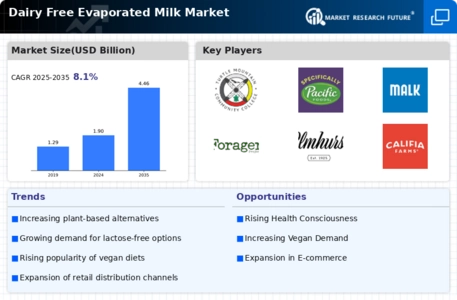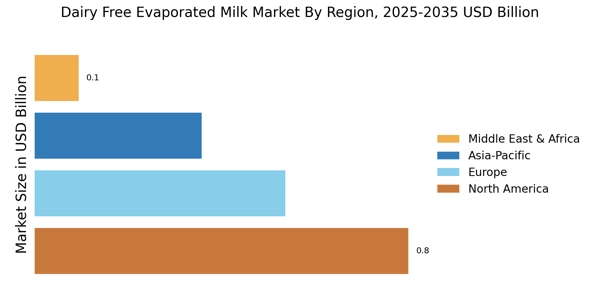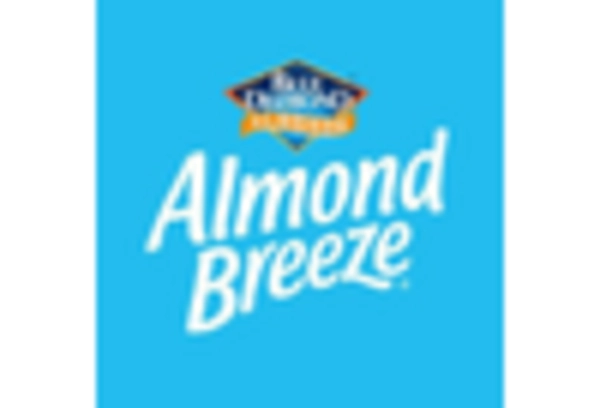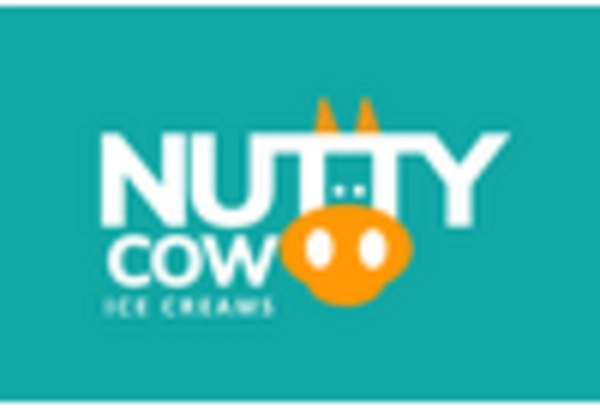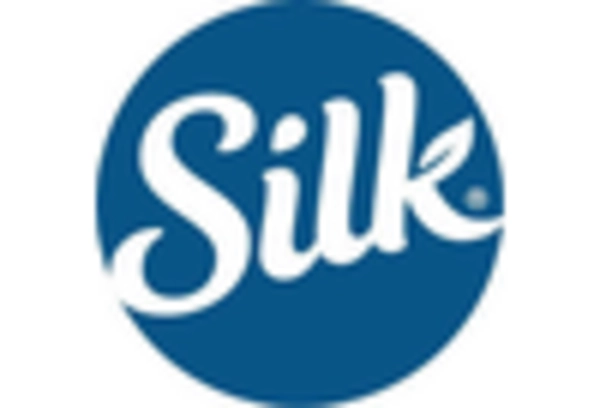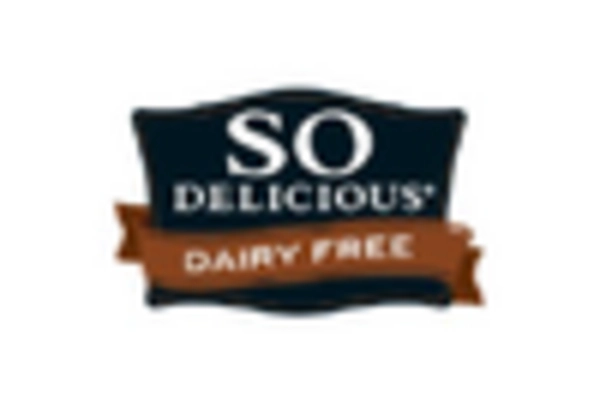Expansion of Distribution Channels
The expansion of distribution channels is a key driver for the dairy Free Evaporated Milk Market. Retailers are increasingly recognizing the demand for dairy-free products and are expanding their offerings to include a wider range of options. This includes not only traditional grocery stores but also online platforms, which have become essential for reaching a broader audience. The convenience of online shopping is particularly appealing to consumers seeking specialty items like dairy-free evaporated milk. As distribution channels continue to diversify, the Dairy Free Evaporated Milk Market is likely to benefit from increased accessibility, allowing more consumers to discover and purchase these products.
Innovations in Product Development
Innovations in product development are playing a crucial role in shaping the Dairy Free Evaporated Milk Market. Manufacturers are increasingly focusing on enhancing the texture, flavor, and nutritional profile of dairy-free evaporated milk. Recent advancements have led to the introduction of products that closely mimic the taste and consistency of traditional evaporated milk, thereby appealing to a broader audience. For instance, the incorporation of new ingredients such as oat and almond bases has been well-received. This innovation not only caters to the taste preferences of consumers but also addresses dietary restrictions, potentially increasing market penetration. As a result, the Dairy Free Evaporated Milk Market is likely to witness a rise in new product launches, further stimulating growth.
Sustainability and Ethical Consumerism
Sustainability and ethical consumerism are becoming increasingly important in the Dairy Free Evaporated Milk Market. Consumers are more inclined to support brands that prioritize environmentally friendly practices and ethical sourcing. This trend is reflected in the rising demand for products that are not only dairy-free but also produced with minimal environmental impact. Research suggests that consumers are willing to pay a premium for sustainable products, which could lead to increased sales in the Dairy Free Evaporated Milk Market. As brands adopt sustainable practices, they may attract a more conscientious consumer base, thereby enhancing their market position and contributing to the overall growth of the industry.
Increased Awareness of Lactose Intolerance
Increased awareness of lactose intolerance is significantly influencing the Dairy Free Evaporated Milk Market. A substantial portion of the population is now aware of their lactose intolerance, leading to a growing preference for dairy-free alternatives. Studies indicate that approximately 65% of the adult population has a reduced ability to digest lactose after infancy. This awareness is prompting consumers to seek out dairy-free options, including evaporated milk, which can be used in various culinary applications. As more individuals recognize the benefits of avoiding lactose, the Dairy Free Evaporated Milk Market is poised for growth, as it offers a viable solution for those looking to enjoy the richness of evaporated milk without the discomfort associated with lactose.
Rising Demand for Plant-Based Alternatives
The Dairy Free Evaporated Milk Market is experiencing a notable surge in demand for plant-based alternatives. This trend is largely driven by an increasing number of consumers opting for vegan and lactose-free diets. According to recent data, the plant-based food sector has seen a growth rate of approximately 27% over the past few years, indicating a shift in consumer preferences. As more individuals become aware of the health benefits associated with dairy-free products, the Dairy Free Evaporated Milk Market is likely to expand further. This shift is not merely a fad; it appears to be a long-term change in dietary habits, suggesting that the market will continue to grow as more consumers seek out dairy-free options.


